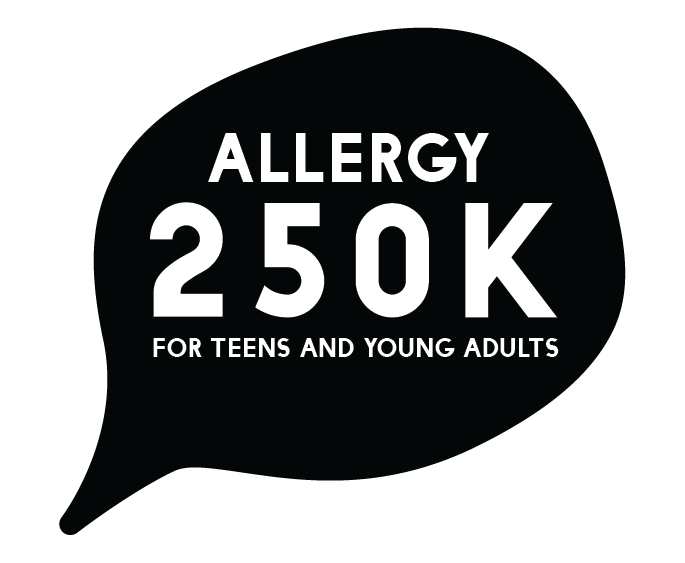Managing Anxiety
Listen Now
Top Tips
- It’s normal to feel anxious. Keep reminding yourself that food allergies are manageable.
- Tell people about your allergy especially when eating out and then ask lots of questions so you can make an informed choice about how safe the food is likely to be.
- Anxiety can be caused by uncertainty, if you have doubts about a particular food item ask questions until you feel you can make an informed decision.
- If you feel unsafe – don’t risk it!
Managing Anxiety
Anxiety as a Smoke Detector
A psychologist once described anxiety using a smoke alarm analogy.
Anxiety can be thought of as the body’s smoke alarm system. A smoke alarm can be triggered when a piece of toast is burning as well as when the house is burning down. Our anxiety can be protective, or it can become a problem (taking control when it really does not need to).
When anxiety gets to a level that feels excessive, uncontrolled or intrusive, persistent or impacts on everyday life by stopping us doing things we really want or need to do, we need to address the anxiety.
Anxiety and Food Allergy
So where does anxiety fit into food allergy? Anxiety develops from fear, uncertainty and doubt. Living with a food allergy means there is always a risk. When we have food allergy, we have to be aware all the time, and are constantly trying to avoid the food we are allergic too. Understandably, this can cause anxiety.
Many situations can cause us to feel anxious, particularly when we have a food allergy. We may feel anxious meeting a group of new people or eating out at a restaurant we’ve never been to before. We can perhaps, feel anxious when travelling or going on school camps or excursions, starting part-time work, or maybe when we are just hanging out with friends and family.
Feeling some level of anxiety is normal, as long as it doesn’t stop us from normal day to day living. It’s important to learn to deal with these anxieties so that we can live a normal life and be comfortable in our surroundings. We all need food to survive so we really need to work on the right level of anxiety to help keep us safe and not too much anxiety that it restricts our life.
If anxiety is stopping you from enjoying normal everyday activities, perhaps you or your parents need a little help. Talk to your GP about a referral to a psychologist.
Some ways we can address anxiety
Confidence is key
Feeling confident in the food we’re eating is essential. If we’re not sure about the food we can:
- Ask for more information about the ingredients if we’re at a restaurant, or a friend’s house having a meal.
- Take your own food or eat before you go and have a drink with family/friends.
- Not eat the food.
If we choose to ask for further information and we’re still not sure about their answer (or the person we have asked is not able to provide us with information we need), it’s probably safest not to eat that particular food item.
Make a habit of having a ‘safe’ snack on hand – in case you get caught in a situation where you don’t feel confident about eating the food.
Build a support network
Make sure that the people you surround yourself with know about your allergy and are somewhat confident in helping you manage your allergy. You will feel less anxious if you’re friends and family know about your allergy and look out for you, know where your medication is kept, and when and how to use it in an emergency.
Having supporters in your court means you have people who will look out for you, and who will support you when you feel anxious and/or overwhelmed.
Seek help
If you’re feeling overwhelmed, it’s a good idea to talk to your parents about it. They know you better than anyone and can get you the help and support you need.
There is no shame in seeking help should you feel that your anxieties are taking over. If you don’t feel comfortable talking to your parents about your anxiety, there are other people out there who can help you.
KIDS HELPLINE
- 1800 55 1800
- This is NOT an emergency helpline. Please call triple zero (000) for an ambulance in an emergency
- Visit the website
LIFELINE
- 13 11 14
- This is NOT an emergency helpline. Please call triple zero (000) for an ambulance in an emergency
- Visit the website
HEADSPACE
- 1800 650 890
- This is NOT an emergency helpline. Please call triple zero (000) for an ambulance in an emergency
- Visit the website
ALLERGY & ANAPHYLAXIS AUSTRALIA
- 1300 728 000
- This is NOT an emergency helpline. Please call triple zero (000) for an ambulance in an emergency
- Visit the website
The Adolescent Medicine Team at the Children’s Hospital at Westmead have developed some helpful information on anxiety for parents and teens in collaboration with Allergy & Anaphylaxis Australia.
